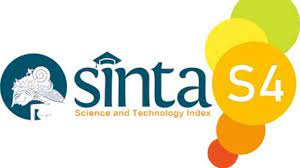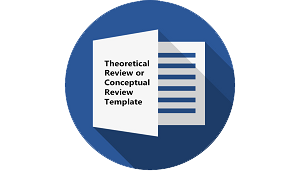IMPROVING THE STUDENTS’ ENGLISH LEARNING OUTCOMES THROUGH TEAM GAME TOURNAMENT MODEL IN ENGLISH FOR ISLAMIC EDUCATION COURSE
DOI:
https://doi.org/10.30957/ijoltl.v8i2.733Keywords:
learning model, Team Game Tournament, CARAbstract
This research aims to increase the students’ ability of semester 2 of Islamic Education Study Program in English course through the learning model of Team Game Tournament (TGT). The subjects of this classroom action research were second-semester students of the Islamic Religious Education study program. The variables of this study consist of student scores and lecturer activity variables. The student variables were taken from the ability to solve English questions and student activities in class. The results of the study showed that the performance of the lecturers following the criteria on the indicators, this was shown from the results of observations in the first cycle and the second cycle was good. This means that the lecturer's performance in learning has increased. Student activity is following the indicators, this is shown from student activity in cycle I with a percentage of 66.67% and cycle II with a processing rate of 93.33%, this means that student activity during learning is very good. Student learning outcomes are following the criteria on the indicators, as indicated by the average student evaluation results in cycle I was 6.88, and cycle II was 8.62. In cycle, I, 17 students, or 47.22% completed their studies and 19 students or 52.78% did not complete them, and 47.22% classical learning completeness. In cycle II, 36 students completed their studies and there were no students who did not complete their studies, and the classical learning mastery was 100.00%. This means that the evaluation results of cycle II are better (increase) than cycle I and do not need to be continued in the next cycle. In addition, the student's response to the implementation of the learning model of Team Game Tournament (TGT) was relatively high, that reached 81.25%.
Downloads
References
Arifin, Zaenal. (2021). Instructional Evaluation. Bandung: PT Young Roesdakarya
Arikunto, Suharsimi. (2016). Fundamentals of Educational Evaluation. Jakarta: Earth Script
Arikunto, Suharsimi. (2020). Research Procedures A Practical Approach. Jakarta: Rineka Cipta
Chaira, M. (2017). Application of the Team Game Tournament (TGT) Cooperative Model to Improve English Learning Outcomes for Grade V Students MIN Tungkob (Doctoral dissertation, UIN Ar-Raniry Banda Aceh).
Darsono, Max, et al. (2020). Learning and Learning. Semarang: IKIP Semarang Press
De Vega, N., Arifin, A., & Anggriani, D. (2018). Teams Games Tournament (TGT) with the Snakes and Ladders Game to Improve Students' English Achievement in Implementing the 2013 Curriculum.Edukasia: Journal of Education, 5(2).
Dimyati and Mudjiono. (2022). Learning and learning. Jakarta: Rineka Cipta
Fauzi, Z. A., & Fikri, H. (2018, December). Improving learning activities using mind mapping models, pair-share, and teams game tournaments In 1st International Conference on Creativity, Innovation, and Technology in Education (IC-CITE 2018) (pp. 318-322). Atlantis Press.
ISMPil SM. (2018). PAIKEM-Based Islamic Religion Learning Strategy. Semarang: Media Group.
KBBI Compilation Team. (2015). Indonesia Dictionary. Semarang: Widya Karya
Merti, N. M. (2020). Application of the Teams Games Tournament (TGT) learning model with audio-visual media to improve English learning outcomes.Journal of Education Action Research, 4(3), 315-321.
Mulyadi, D. (2022). Improving Student Learning Outcomes by Applying the Team Game Tournament (TGT) Cooperative Learning Model.JIIP-Journal of Scientific Education, 5(10), 4537-4543.
Nurkhozainillah, S., & Nurzaelani, M. M. (2019). Efforts to Improve Student Learning Outcomes Using the Team Game Tournament Cooperative Model in English Lessons. Educate Journal of Educational Technology, 4(2), 61-72.
Pratiwi, K. Y., Rasana, I. D. P. R., & Pudjawan, K. (2018). The Influence of the Teams Games Tournament (TGT) Learning Model on English Vocabulary Mastery in Class IV Elementary School Cluster Iv Tabanan District.Undiksha PGSD pulpit, 1(1).
Purwanto, Ngalim. (2022). Educational Psychology. Bandung: PT Remaja Rosdakarya
Rusman. (2021). Learning Models, Developing Lecturer Professionalism.Jakarta: Rajawali Press.
Sanjaya, Winna. (2008). Educational Process Standards Oriented Learning Strategies. Jakarta: Kencana Prenada Media Group.
Slameto. (2021). Learning and Factors That Influence It Jakarta: Rineka Cipta
Slavin, Robert E. (2015). Cooperative Learning. Bandung: NusaMedia.
Sudjana, Nana. (2016).Research Results of Teaching and Learning Processes. Bandung: PT Young Roesdakarya
Sugiata, I. W. (2018). Application of the team game tournament (TGT) learning model to improve learning outcomes.Journal of Indonesian Chemistry Education, 2(2), 78-87.
Tri Anni, Catharina. (2017). Learning Psychology. Semarang: UPT MKK UNNES
Umar, M. (2021). Implementation of the Team Game Tournament Learning Model to Improve English Learning Outcomes. Edutrained Journal: Journal of Education and Training, 5(2), 140-147.
Downloads
Published
How to Cite
Issue
Section
License
Authors who publish with this journal agree to the following terms:
- Authors retain copyright and grant the journal right of first publication with the work simultaneously licensed under a Creative Commons Attribution-ShareAlike 4.0 International License that allows others to share the work with an acknowledgement of the work's authorship and initial publication in this journal.
- Authors are able to enter into separate, additional contractual arrangements for the non-exclusive distribution of the journal's published version of the work (e.g., post it to an institutional repository or publish it in a book), with an acknowledgement of its initial publication in this journal.
- Authors are permitted and encouraged to post their work online (e.g., in institutional repositories or on their website) prior to and during the submission process, as it can lead to productive exchanges, as well as earlier and greater citation of published work (See The Effect of Open Access).












